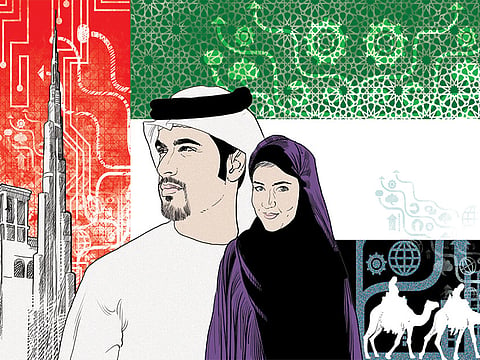Why the UAE’s regional activism?
The country is flying high these days with Abu Dhabi as the successful political capital and Dubai as the de facto commercial capital of the Arab World

It is hard not to notice that the UAE has become more visible and active in regional affairs lately. Wherever you go, the UAE looms large on the horizon, certainly larger than it has been in the past four decades since its formation in 1971.
Most likely UAE’s political visibility, military assertiveness, economic prominence and its growing regional role will continue throughout this year and beyond.
The UAE’s palpable regional activism has led to all sorts of enquiries among critics as to why the UAE, why Abu Dhabi and why Dubai? What motivates the once low-profile UAE to take the lead role in Arab politics that is in turmoil and dogged by uncertainties?
Three cases are usually cited to highlight UAE’s recent involvement in regional politics and explain the notable change from the exclusive focus on mere survival in the past four decades to the new and supposedly more proactive and assertive policy to project regional influence.
The first and probably most important case has to do with Egypt. In 2013, the UAE took a huge political decision to stand by Egypt and use its considerable financial, political and diplomatic resources to help stabilise this important Arab country that was going through a difficult political transition since the Arab Spring of 2011.
When Egypt was in desperate need of understanding and support, the UAE was there before anyone else. Its timely move helped to avert the worst-case scenario for Egypt. Nearly a year later Egypt looks more stable than it was in 2013. Every single dollar and every single moment the UAE invested to stabilise Egypt politically was worth it and indeed it has paid off handsomely for the UAE.
Leadership is mostly about political courage and taking calculated risks. The UAE has taken both lately: plenty of courage along with plenty of risks. Luckily the results have been good so far and the UAE suddenly stands ten inches taller as of 2015.
The second case has to do with its timely decision to publicly and decisively confront the deadly Daesh (Islamic State of Iraq and the Levant). In 2014 UAE did not hesitate to take an equally daring decision to join the fight against the forces of extremism that were unleashed in Syria and Iraq.
For the UAE and other Arab Gulf states Islam was at stake, more than any imminent threats to their internal stability and security. By the end of 2014 the UAE looked militarily formidable and ready to play in the major league with other regional and global powers. Some even mistakenly nicknamed the UAE as ‘little Sparta’. There is absolutely nothing little about the UAE these days, and it is almost nonsensical to view it as a mere military power.
The third case has to do with the UAE’s decision to go after the Muslim Brotherhood and stop the rise of political Islam. In 2011, the UAE took upon itself the task to stand up to the 85-year-old group which falsely assumed it has a popular mandate to shape Arab politics to its own liking. Four years later political Islam is massively contained and no one should take more credit in discrediting the Brotherhood than the UAE.
Arab moderation
The motives behind the UAE’s regional activism are easy to address. The key word is influence, pure and simple. It is elementary that all countries, small or big, aspire to influence events around them whenever possible.
With its decisive leader and the massive resources at its disposal the UAE is now the net exporter of influence. However the fundamental ideological drive remains unchanged: defending what remains of Arab moderation and bringing back Arab moderates to Arab politics.
What distinguishes the UAE in its drive for regional prominence is the sense of being a team player. Abu Dhabi is keen to coordinate every single action with its bigger neighbour Saudi Arabia. For the first time in many years, Riyadh and Abu Dhabi are on the same page and see eye-to-eye on regional politics.
In addition, the UAE has now secured Egypt on its side. Arab politics has become a tri-polar undertaking with Cairo, Riyadh and Abu Dhabi calling most of the shots. But of the three partners, the UAE looks the most dynamic, decisive and assertive.
Washington and other world capitals have noticed the UAE’s growing regional influence and recognised it as a reliable and credible ally. When there is a need for action or friendly advice, the UAE looms large these days.
The UAE is flying high these day with two solid wings: Abu Dhabi as the successful political capital and Dubai as the de facto commercial capital of the Arab world. Both wings are in full display spreading UAE’s soft and hard influence to the region and beyond.



